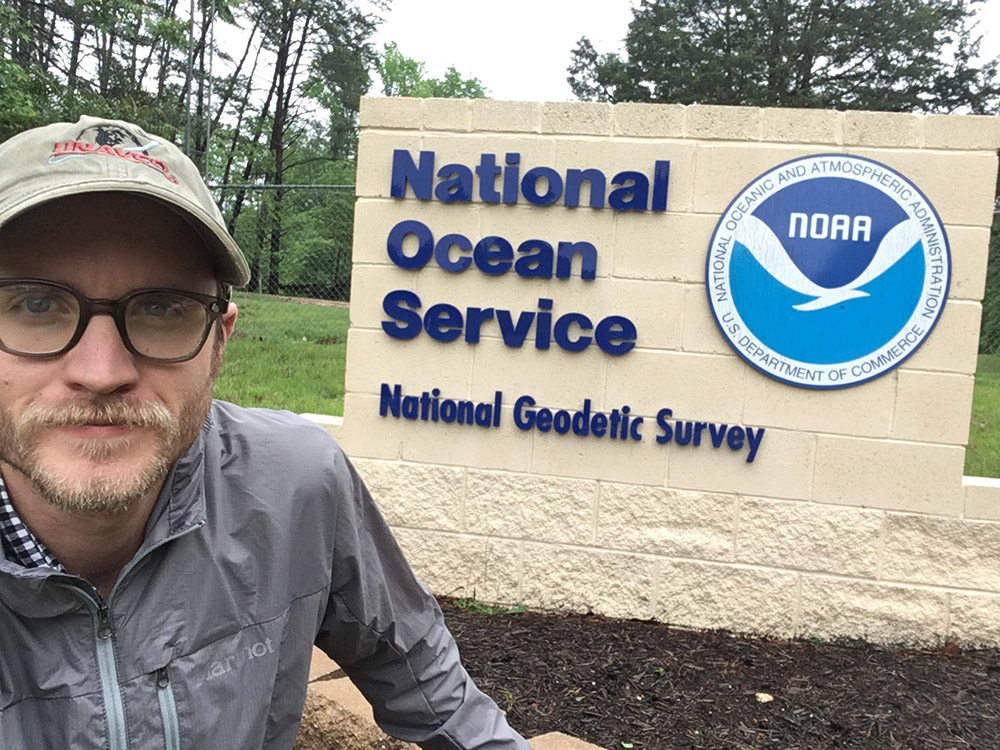UTEP Doctoral Student Will Help Map Pacific Ocean Seafloor Aboard Exploration Vessel Nautilus
Last Updated on October 02, 2018 at 12:00 AM
Originally published October 02, 2018
By UC Staff
UTEP Communications
A NOAA CREST Scholar and an environmental science and engineering doctoral student from The University of Texas at El Paso will set sail on a mission to help map the Pacific Ocean seafloor this week.

Stephen Escarzaga will be part of the crew of the Exploration Vessel (E/V) Nautilus, a research vessel operated by the Ocean Exploration Trust. The internship opportunity is provided by the National Oceanic and Atmospheric Administration Educational Partnership Program with Minority Serving Institution (NOAA-EPP-MSI) funding to the NOAA-Cooperative Science Center for Earth System Sciences and Remote Sensing Technologies (NOAA-CESSRST). UTEP is one of six consortium members of the NOAA CREST Center led by the City College of the City University of New York.
Escarzaga will be on board E/V Nautilus from Oct. 4 through 18, 2018, on a missison that will map the Clarion-Clipperton Fracture Zone from San Francisco to Honolulu.
“I’m extremely honored to have been chosen for this opportunity,” Escarzaga said. “This is certainly something that, even as early as a year ago, I never thought would cross my path. Having been born and raised in El Paso, the opportunity to work aboard a research vessel at sea for three weeks isn’t one that comes often. I hope to come away from this experience with the solid technical skills that will help advance my dissertation work. I also hope to gain valuable experience in working in an operational science setting seen in agencies such as NOAA and developing long-term professional networking relationship.
While on the E/V Nautilus, Escarzaga will conduct seafloor mapping surveys, assist with science and education activities, network with STEM professionals and experience the life of at-sea exploration. A typical working day on the ship is approximately 10-14 hours. Escarzaga is well-versed with NOAA and CREST missions and the opportunities. He was a recipient of the 2017 NOAA CREST Vice Admiral Conrad C. Lautenbacher Public Service Graduate Scholarship, and continues work under a NOAA CREST fellowship to pursue his doctoral research at UTEP.
In addition, Escarzaga took part in a weeklong training session in coastal airborne imagery data processing at the NOAA Remote Sensing Division in Fredericksburg, Virginia. He also spent the last three summers in northern Alaska conducting research and science outreach.
Escarzaga expressed his gratitude toward NOAA EPP/MSI and CREST for the funding and professional development opportunities and his research advisers at UTEP — Craig E. Tweedie, Ph.D., professor and director of the Environmental Science and Engineering Program, and Miguel Velez-Reyes, Ph.D., professor and chair of the Electrical and Computer Engineering Department.
“Dr. Tweedie has continuously provided a wealth of guidance and support over the past 3 to 4 years. His 20-plus years of Arctic research has allowed me to expand my area of research well beyond the Chihuahuan Desert and into places I never thought I’d visit,” Escarzaga said.
“Additionally, my co-advisor, Dr. Miguel Velez-Reyes, has brought a technical aspect of remote sensing to my graduate studies that will allow me to properly apply aspects of the technology to coastal and nearshore issues in the Arctic.”
NOAA CREST is a national consortium of six universities throughout the country that are designated as minority-serving institutions (MSI), Hispanic-serving institutions (HSI) or Historically Black Colleges and Universities (HBCU). These institutions provide fellowship support, research, and training opportunities for students particularly from underrepresented minority communities in NOAA mission sciences for future workforce and careers in NOAA mission-related STEM fields.